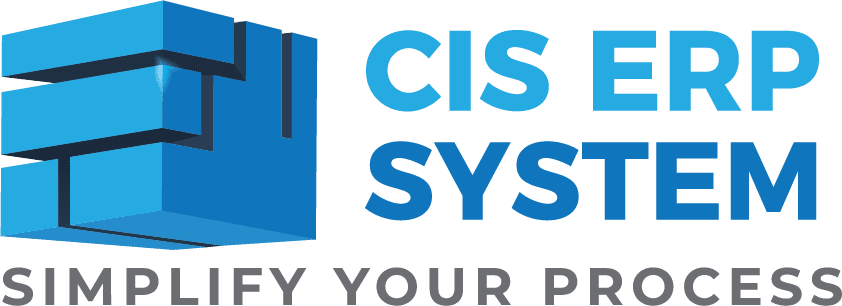
Imagine the time when the business’s software does not manage data only, but also predicts market changes, automates decision-making, and integrates smoothly with each aspect of its operations, too (from production to delivery).
This is no longer a distant theoretical concept. It is the future of enterprise resource planning (ERP). This enterprise-level software has been the backbone of modern organizations. Yet the traditional model is undergoing a dramatic transformation.
The world is now moving beyond static databases. They are entering a world of dynamic, intelligent, and interconnected enterprise management. The future of ERP systems is not just about the adoption of new technology. Instead, it is about a fundamental shift in the way businesses work and strategize.
This introduction will examine the most significant future trends in ERP systems that are transforming the landscape of enterprise software. Furthermore, it will also explain how staying ahead of this evolution is key for businesses to thrive in a competitive environment.
Top Trends in ERP this Year – What to Expect?
The global ERP market has increased by 8% worldwide since 2022. Organizations are now forecasted to spend almost USD 147.7 billion on ERP software this year. As a result, businesses need to be aware not only of the latest trends but also of the future of ERP systems and what is best for them.
Advances in automation, cloud computing, and computational intelligence are enabling ERP systems to become more intelligent, impactful, and readily accessible.
Keeping all these factors in consideration, we will now examine the trends taking place in the world of ERP systems this year:
AI-Powered ERP Solutions for Smarter Operations
Implementation of artificial intelligence is among the noticeable future trends in ERP systems. Artificial intelligence (AI) is undoubtedly improving ERP systems. It is doing so via the following practices:
- Enhancing automation
- Integrating data analytics
- Automating decision-making
AI capabilities are advancing. This leads to the development of innovative ERP solutions. AI in ERP software is helping organizations predict market trends, streamlining their workflows, and improving overall efficiency. Here are some examples to consider:
- Predictive analytics helps ERP systems to detect incoming challenges (supply chain interruptions, financial forecasting etc.)
- AI-powered automation is helping reduce manual workloads. Additionally, it is improving accuracy in data entry, invoicing, and customer service
- Natural language processing (NLP) amplifies user interactions. It makes ERP software systems more intuitive due to AI-driven chat support and voice-activated commands.
ERP on Premises vs Cloud
Cloud-based ERP software trends continue to gain momentum. Businesses are seeking flexibility, scalability, and cost efficiency. Organizations today are rapidly adopting hybrid and multi-cloud ERP software and tactics. It ranks among the most important future trends in ERP systems. This practice helps them balance performance, security, and integration requirements.
Cloud-based ERP software helps eliminate the need for expensive on-site hardware and costly maintenance. Because it helps companies access robust software on a subscription model. Moreover, it creates scalable and affordable ERP software.
Here are some trends to consider in this regard:
- Hybrid cloud ERP offers businesses the flexibility to combine public and private cloud environments. Data security and system agility are optimized and maintained
- Integrated edge computing and cloud-based ERP systems enable real-time data processing (from IoT devices and remote locations easily)
- ERP-as-a-Service (ERPaaS) models are becoming popular. They help businesses and organizations alike access robust ERP functionalities at an optimal price.
Industry-wise ERP Customization
Organizations are moving away from systems using a one-size-fits-all approach. ERP solutions are being customized for different industries. Tailoring software as per the company’s size, requirements, and industry needs is one of those important future trends in ERP systems that cannot be ignored.
More companies demand ERP platforms that align with their industry’s unique regulatory requirements, operational needs, and workflows. Here are the capabilities of these platforms:
- Readymade industry modules enable businesses to implement ERP systems quickly. It reduces the need for comprehensive customization.
- Regulatory compliance integration helps key industries fulfil compliance requirements via ERP systems (like finance, healthcare, and manufacturing).
- AI-driven process optimization helps refine workflows industry-wise. Besides, it also helps automate compliance reporting to reduce loopholes.
What is ERP Automation?
ERP automation refers to the unique combination of ERP software itself with artificial intelligence (AI). Because it automatically manages tasks using the platform. This covers various tasks from data entry to financial reporting and vice versa.
This automation helps executives make quicker and intelligent decisions. They are the need of the hour in the business world. The process is the outcome of hype automation being a key driver of innovations in ERP software this year. Consequently, it is also one of those future trends in ERP systems that is making rapid strides.
This tactic achieves proper automation of existing workflows via integration of the following technologies:
- Artificial intelligence (AI)
- Machine learning (ML)
- Robotic process automation (RPA)
Here are some reasons why ERP automation is helpful:
- Reduction of manual work helps ERPs automate invoicing, data entry, and payroll
- ERP automation raises productivity. It reduces human intervention in routine tasks, helping employees focus on core tasks.
Blockchain for Security and Transparency in ERP
There are increasing concerns over cybersecurity and data integrity. Blockchain is a key component of innovations in ERP. This tech is amplifying security, improving transparency, and reducing risks of fraud.
Transparency in enterprise systems is among the key future trends in ERP systems. They are fundamental in helping organizations work seamlessly. Here are the features that make this phenomenon a possibility:
- Immutable transaction records ensure the safety of data regarding finances, procurement, and the supply chain.
- Decentralized security frameworks protect ERP data from cyberattacks and unauthorized access.
- Smart contracts help automate agreements and enforce contract terms within ERP systems. It helps reduce disputes and inefficiencies.
Internet of Things (IoT) integrating with ERP
Integrating ERP systems with IoT has helped transform various industries. Companies are improving evidently by enabling real-time data collection and automated decision-making. The latter’s adoption helps companies embrace ERP trends focusing on using sensor-driven data. The process helps them optimize business operations.
Here is how integration of IoT with ERP is helping organizations improve their operations:
- Real-time asset tracking allows companies to efficiently manage inventory, equipment performance, and fleet.
- Automated supply chain management enhances logistics planning and management. It helps reduce waste and improve demand forecasting.
- Workplace safety is easily checked via ERP. It helps track environmental conditions, employee movements, and ensures compliance with employee safety regulations.
Over to You
ERP software is poised for a bright future. Artificial intelligence, machine learning, and robotic process automation are hence important technologies. Because they are helping add new features and dimensions to enterprise systems. This helps reduce errors and improve organizational efficiency.
Integration of IoT and cloud technologies in ERP helps organizations access the software remotely. The tactic can help them effectively protect their data. Moreover, it also helps share data securely and seamlessly.

